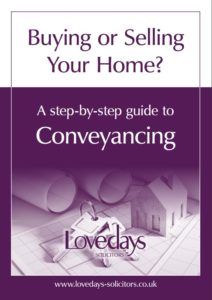- Home
- Personal Services
- Advice for Employees
- Conveyancing
- Dispute Resolution
- Boundary Disputes
- Dealing with Rent Arrears
- Japanese Knotweed Claims
- Landlord and Tenant Disputes
- Landlord Harassment & Illegal Eviction
- Negligence Claims Against Builders & Developers
- New Build Property Disputes
- Noisy Neighbour Disputes
- Personal Debt Collection
- Property Misrepresentations Claims
- Rights of Way Disputes
- Section 21 No Fault Evictions
- TOLOTA Claims
- Tree & Hedge Neighbour Disputes
- Divorce and Separation
- Family Law
- Lasting Power of Attorney
- Licensing
- Probate Law
- Trusts
- Wills
- Business Services
- Reviews
- Make An Enquiry
- Cost and Service Information
- About Us
- Contact Us
Navigating Civil Partnership Dissolution
For many couples who do not want to get married, a civil partnership has proved to be the answer. This gives the relationship legal recognition, rights and responsibilities which couples who simply live together do not have. However, the time may come when that relationship ends, and it becomes necessary to dissolve the partnership.
Understanding Civil Partnerships
In the UK, civil partnerships are available to same-sex and opposite-sex couples. It is a legal union which is entered into by signing a civil partnership document, rather than the vows that are required for a marriage. They were brought in during 2005 for same-sex couples, but were opened up to opposite-sex couples in 2019.
A civil partnership allows couples to have certain legal rights, including jointly adopting a child and creating joint bank accounts. It also means that if one partner dies, the money will be inherited by the surviving partner, although property will not be unless it is left in their name.
Those in a civil partnership are entitled to claim the marriage allowance and they can also transfer assets with no Capital Gains or Inheritance Tax liability.
A civil partnership is different to a marriage in the way that it is entered into, and the fact that a marriage is brought to an end through a divorce instead of a dissolution, although the grounds for doing so are the same. Marriage ceremonies can be either civil or religious, whilst a civil partnership is a civil ceremony.
Eligibility for Civil Partnership Dissolution
In order to dissolve a civil partnership, you will need to have been in the partnership for at least a year. It is necessary to apply to the court for a dissolution and you will need to work out the financial and care arrangements for any children, as well as dividing up your finances and assets. It is advisable to seek a solicitor's advice for this.
The reason for dissolving a civil partnership has to be that the relationship “has broken down irretrievably”. You will need to ensure that you have your original civil partnership certificate or a certified copy to lodge with the court and both parties will need to agree to the dissolution. When the application is made to the court, where it will either be uncontested by both parties or defended if someone does not agree.
There is a 20 week cooling off period after the application is issued to allow time for reflection before a conditional order is issued to show that the court is satisfied with the application. Six weeks after this, a “final order” can be applied for to bring the partnership to an end.
{quote}
Preparing for Dissolution
To end your civil partnership you will need to make sure that you have the right documentation in place. You will need to work out whether you are making a joint application with your spouse or whether you will be applying by yourself. The process can be a complex one depending on your situation, and so it is best to get proper legal advice throughout.
You will need your civil partnership certificate before you file the dissolution application. This will include the details of the civil partnership, the parties involved and confirmation that it has broken down. If you are applying on your own, a copy will be sent to your partner so that they can respond. There will also be a court fee which will need to be paid.
At Lovedays Solicitors, we understand what a stressful process a civil partnership dissolution can be and so we will try to make the process as easy as possible through clear advice, expert knowledge and compassion. This can ensure that the process runs smoothly and without unnecessary delay.
Financial and Child Arrangement Considerations
Much like a divorce, it is important to make arrangements regarding any children involved in the relationship and any shared finances or property. It is important to come to an agreement on things such as child custody and a division of assets before going to court if possible, as this can prevent things from becoming hostile and will help the process run more smoothly.
At Lovedays Solicitors, we can offer you professional legal advice on what a fair arrangement would look like, and handle dealing with your partner and their solicitors in drawing up an agreement that all parties are happy with.
This ensures that everyone’s legal rights have been met and taken account of, and that you are entering into an agreement fully informed. A solicitor can ensure that you make reasonable offers and responses and that you receive anything that you are entitled to.
If it is not possible to come to an agreement on any of these aspects, then you may need to apply to court for a child or financial arrangement order. This will not only add to your costs, but can also slow down the entire process, causing more stress for everyone involved.
{quote}
The Dissolution Process Explained
When you decide that you would like to dissolve your civil partnership and are eligible to do so, then you will need to apply to the court with confirmation that your relationship has broken down irretrievably. This should be accompanied by your civil partnership certificate and the court fee. The court will then send a copy of the application to your partner who has 14 days to acknowledge it. They will only be able to challenge the dissolution if the court does not have the appropriate jurisdiction to deal with it, if the civil partnership was not valid or if it has already been legally dissolved.
Once an acknowledgement from your partner has been received by the court, you will begin a 20-week cooling off period. This gives all parties a chance to reflect on the decisions that they are making and ensure that nothing has been rushed into.
Once the 20-week wait has been completed, you will then be able to apply to the court for a conditional order. Six weeks after this has been granted, it is then possible to apply for the final order. Once this has been received, your civil partnership will be considered to have been legally ended.
Whilst you may want to get the process completed as quickly as possible, it is important not to finalise the dissolution until you have all financial and child arrangements in place. If you need to apply to the court for an order regarding either of these, you will be required to attend a hearing where a judge will decide on the outcome based on the evidence that each party presents.
Special Considerations in Civil Partnership Dissolution
In some cases, your partner may disagree with the dissolution of the civil partnership, which is known as a defended or contested dissolution. If this happens, your partner will be given a further 21 days to file an answer in court. However, there are very few reasons why someone can contest a dissolution, and they cannot simply argue that they do not believe the civil partnership has broken down.
According to EU law, it is possible to dissolve your civil partnership in a different EU country to the one where it was registered. If you or your partner has a connection with a non-EU country then where you are able to dissolve the civil partnership will depend on a number of factors, although the most significant one tends to be the country that has the closest connection to you both.
Of course, no two dissolution cases are the same, and if you have some unique elements, it is important to seek proper legal advice, as the process may become complex and confusing.
Conclusion
Ending a civil partnership can be an emotional time, and there are as many legal complexities as a traditional divorce, so it is important to ensure that you have solid and professional legal advice throughout. Our experts are always on hand every step of the way to ensure that you get the outcomes that you are entitled to with as little stress as possible.
{quote}
Frequently Asked Questions
A civil partnership may be considered to be void if either party is already lawfully married or in another civil partnership or if either party is under the age of 16. It will also be considered void if due notice of the proposed civil partnership has not been given at the time of register, if the place of registration is other than that specified in the certificate, if a civil partnership registrar was not present, if it did not take place in approved premises or is the document itself is void.
A civil partnership dissolution does not revoke a will, although your ex-partner will take effect as though they had died on the date of the dissolution. To avoid complications, it is advisable to change your will when your dissolution is final.
The length of time can vary depending on the circumstances, but an uncontested dissolution can take a minimum of 4-6 months.
Whilst both will bring the civil partnership to an end legally, an annulment will mean that in the eyes of the law, it never took place, usually because it was not legally valid and it can be applied for within the first year of the civil partnership.
Get Support Today
At Lovedays Solicitors, we are experts in handling civil partnership dissolutions with in-depth knowledge, experience and sensitivity. We can take you through the entire process, making the dissolution as straight forward and pain-free as possible.

Free Guide
If you don’t know your leasehold from your freehold, then get our Free Conveyancing Guide. It contains details about the steps you will need to take with any property transactions. The Guide giving you detailed guidance on what your lawyer will be doing for you and what to look out for.


Lovedays Solicitors, Brooke-Taylors Solicitors, Potter and Co Solicitors and Andrew Macbeth Cash and Co Solicitors are the trading names of Derbyshire Legal Services Limited which is a company registered in England and Wales under company number 08838592. Registered office Sherwood House, 1 Snitterton Road, Matlock, Derbyshire, DE4 3LZ.
Authorised and Regulated by the Solicitors Regulation Authority under SRA ID number 637916.
-
01629 56660
-
This email address is being protected from spambots. You need JavaScript enabled to view it. -
Sherwood House
1 Snitterton Road
Matlock
Derbyshire
DE4 3LZ
© Copyright 2019 Derbyshire Legal Services Limited | Website by WebWorks